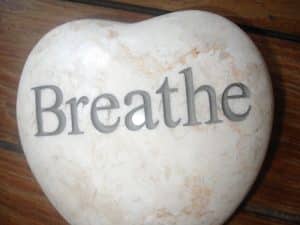 What do you think about when you hear the term “take some deep breaths”? Usually you are trying to come down from a frustrating or emotionally exhausting experience. Sometimes we are trying to calm down, take a moment and reassess a challenging situation. Sometimes we literally take deep breaths when we are under water and trying not to drown or simply trying to get from one end of the pool to another in the quickest, most efficient way. But when we come up, we are tired, gasping for breath.
What do you think about when you hear the term “take some deep breaths”? Usually you are trying to come down from a frustrating or emotionally exhausting experience. Sometimes we are trying to calm down, take a moment and reassess a challenging situation. Sometimes we literally take deep breaths when we are under water and trying not to drown or simply trying to get from one end of the pool to another in the quickest, most efficient way. But when we come up, we are tired, gasping for breath.
Deep breaths connect us to life-giving oxygen as well as the present moment. So I say that it’s important to not only take deep breaths when we are in crisis or trying not to drown (both literally and figuratively) but, rather, to train ourselves to be conscious enough throughout the day to regularly take deep breaths. So many of my patients say they don’t have the time or energy to simply be with themselves and pay attention to their own needs at any given moment. But with regular “deep breath” breaks, we are allowing ourselves the opportunity to do several important things for ourselves including 1) reconnecting with the now and feeling “what is” rather than “what was” or “what should be”; 2) our body has a moment to rest and integrate the physical experiences of the day. We feel our heartbeat, notice if we are hungry, tired or dehydrated, and relax our muscles for some much-needed down time if even for a minute or two; 3) deep breathing reduces carbon dioxide in the blood stream.
For patients who do not breathe deeply often enough (which is most of us) increasing oxygen levels in the blood can decrease common health complaints like stress, fatique and lack of mental clarity. Even many fortune 500 companies place their CEOs into deep breathing workshops. This helps them to reduce stress in the workplace and improves performance.


















